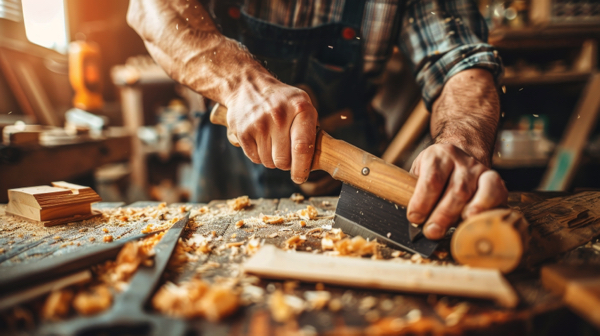- Urban disasters bring unique risks like contaminated water, scarce foraging and security threats, making collaboration and skill-sharing essential for stabilization.
- Expertise in water procurement, hunting and foraging, medical aid and food preservation ensures survival and becomes valuable for bartering.
- Carpentry, plumbing and electrical repair skills help build durable shelters and restore basic utilities, aiding long-term community resilience.
- Weapons-making, perimeter defense and improvised communication (e.g., radio repair) are vital for protection and coordination.
- Specialized skills (e.g., mechanical repair, tailoring) allow individuals to trade for necessities, proving that preparedness hinges on practical knowledge, not just gear.
When disaster strikes, the initial survival phase is the most perilous. Resources become scarce, infrastructure collapses and societal norms may dissolve. Unlike wilderness survival, urban environments present unique challenges, such as contaminated water, limited foraging options and heightened security risks. Experts emphasize that collaboration and skill-sharing are crucial for transitioning from mere survival to stabilization. Those with specialized knowledge can trade their expertise for necessities, forming the backbone of a recovering community.
Here are tradeable survival skills that will come in handy when SHTF. (h/t to AskAPrepper.com)
Water procurement and purification
Access to clean water is non-negotiable. While humans can survive days without food, dehydration kills swiftly — especially in extreme climates. Few modern individuals know how to locate groundwater, desalinate seawater or purify contaminated sources. Those skilled in filtration methods (boiling, chemical treatment or solar stills) will be indispensable. In desert regions or polluted urban areas, this expertise could save lives and command high trade value.
Hunting, fishing and foraging
Though hunting and fishing are often recreational today, reliable food procurement requires deep knowledge of animal behavior, trapping and weapon proficiency. Foragers who identify edible plants, medicinal herbs and nutrient-rich fungi can sustain themselves and trade surplus goods. In a crisis, even basic spices or wild edibles can transform unpalatable rations into nourishing meals, making foraging a lucrative skill.
Medical aid
Injuries and illnesses surge during disasters, yet professional medical care may vanish. Those trained in first aid, wound care or herbal remedies become vital. Even without formal credentials, practical knowledge — such as stitching wounds, setting bones or treating infections — can be traded for shelter, food or protection. Prepper communities often prioritize medical stockpiles, but hands-on skills are irreplaceable.
Fur dressing and tailoring
Clothing is essential for protection against the elements, yet few know how to tan hides or repair garments. Skilled tailors can transform pelts into insulated coats, waterproof gear or sturdy footwear. In harsh climates, this craft ensures survival and offers bartering power for those lacking materials or know-how.
Food preservation
Without refrigeration, preserving meat, fruits and vegetables becomes critical. Techniques like smoking, canning and fermenting prevent spoilage and stretch supplies through lean seasons. In agricultural regions, those who master food preservation can trade stored goods during winter months or droughts. (Related: Health Ranger Report: Alex Mitchell explains how HEIRLOOM SEEDS can secure food future.)
Construction and repair
Shelter-building extends beyond rudimentary lean-tos. Carpentry, masonry and roofing skills allow for durable, weatherproof structures. Plumbers can rig makeshift sanitation systems, while electricians might repair generators or solar panels. In long-term crises, these trades ensure livable conditions and community resilience.
Security and weapons crafting
Safety hinges on defense. Skilled individuals can design perimeter alarms, forge weapons or reload ammunition. Even primitive tools—bows, spears or traps—hold value for hunters and guards. Communicating via improvised radios (like modified CB units) also aids coordination when traditional networks fail.
Mechanical and electrical repair
Post-collapse, scavenged vehicles, generators and tools will need maintenance. Those who can fix engines, rewire circuits or repurpose machinery become key players. Such expertise allows communities to restore limited power, transport or irrigation, accelerating recovery.
In an SHTF scenario, survival hinges on more than luck — it demands expertise. By mastering tradeable skills like water purification, medical aid or construction, individuals can secure their own needs while contributing to collective recovery. In an uncertain future, knowledge may be the ultimate currency.
Watch the following video to learn more about trade skills you need to learn for when SHTF.
This video is from the Daily Videos channel on Brighteon.com.
More related stories:
A self-sufficient legacy: 12 Useful prepping skills to teach the next generation.
20 Wilderness survival tips that might save your life after SHTF.
Prepper recipes: How to make bread without an oven like the pioneers did.
Wild foods you can forage and pickle for long-tern storage.
Sources include:
AskAPrepper.com
Brighteon.ai
Brighteon.com
Read full article here


